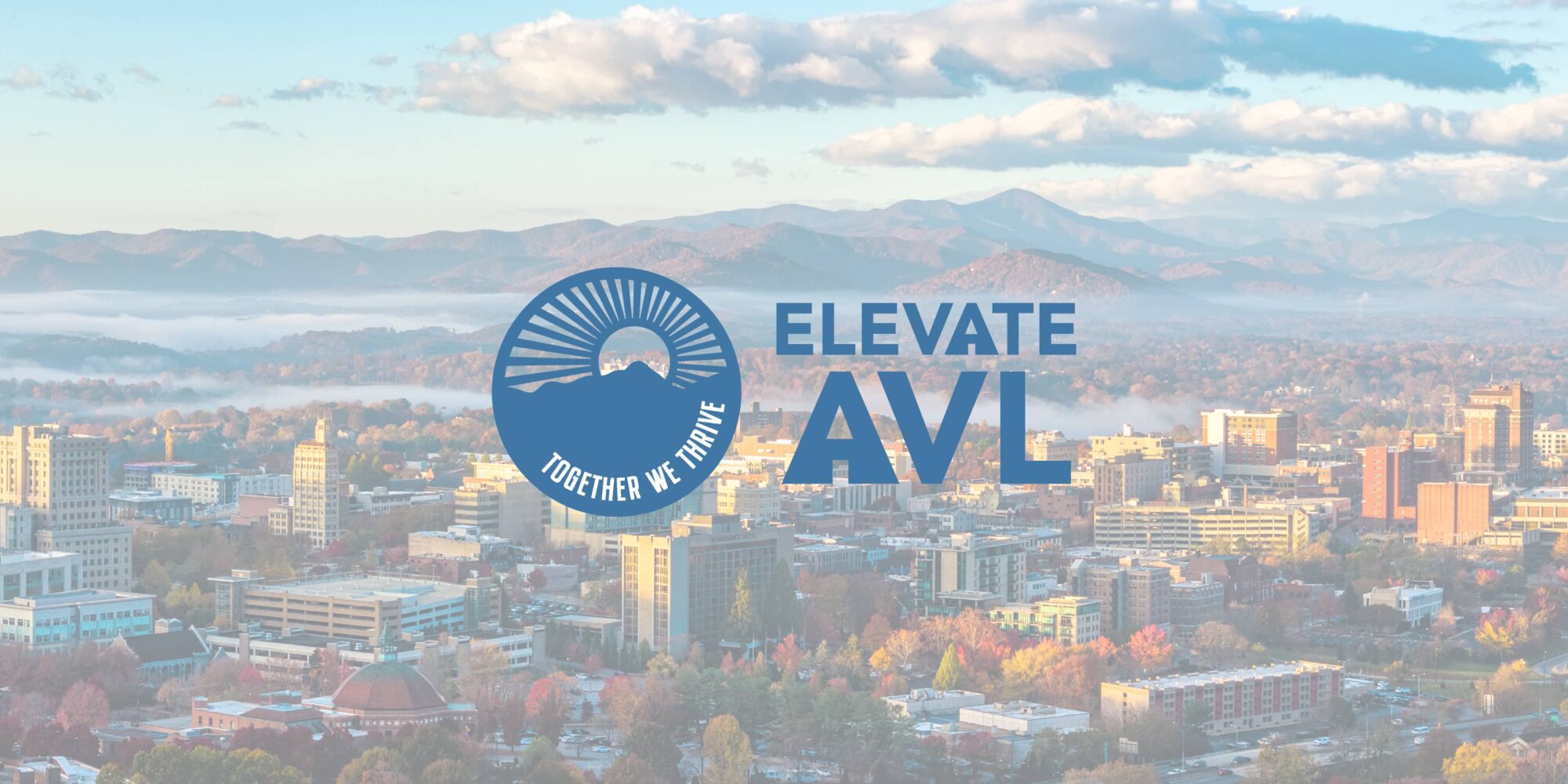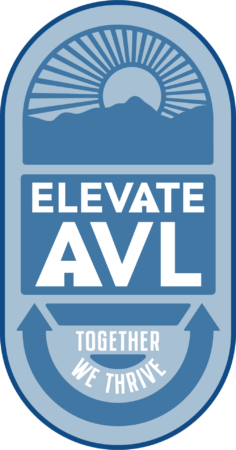Happening Now
In the wake of Tropical Storm Helene, community-led climate action is more pressing than ever. Elevate AVL engagement agents showed up alongside thousands of other Asheville residents to support neighbors and are continuing to envision and activate what neighborhood-based resiliency can and must be as we rebuild. Throughout the winter of 2024 and into 2025, engagement agents are drawing on their Helene experiences, their expertise, and the wisdom of their communities to develop and pilot community-led projects that have emerged from their climate leadership. Stay tuned for initiatives focused on climate literacy, water capture and access, mental health, emergency preparedness, and photo documentation to be launched in the coming months.
Elevate AVL engagement agents and advisory committee members continue to work with community members to co-create resources and strategies that build neighborhood resilience. The project seeks to learn from Asheville communities to inform neighborhood-led and city-supported initiatives to develop shared resources and ideas to thrive in a changing climate.
This current phase of the Climate Justice Initiative will design and distribute climate action resources to build resilience and inform next steps.
Background
In January 2020 Asheville City Council declared a Climate Emergency. The adopted Resolution 20-25 acknowledges the urgent need to combat climate change and the disproportionate impact of the climate crisis on low income communities and communities of color.
The Climate Justice Initiative was launched to take action on the Climate Emergency; the first phases included external engagement and the development of resources and tools to guide project development and resource allocation.
The current Elevate AVL initiative will update the 2019 Personal Action Guide based on the Climate Justice Initiative learnings. The project will create new tools and resources to support Asheville neighborhoods in climate conversation to build neighborhood resilience and take personal and community-led climate justice action.
Timeline
- January 2020 – Climate Emergency declaration
- June 2020 – Climate Justice Initiative Phase 1 – community engagement, story circles, Listening + Learning, Screening and Climate Justice Data Map tool development
- January 2022 – Climate Justice Initiative Phase 2- Incorporating Climate Justice into City Operations – pilot use of Screening tool in project management processes
- April 2023 – Screening tool revision and redeployment for project planning and resource allocation
- October 2023 – Elevate AVL project launch
- Spring/Summer 2024 – Community conversations conducted by 5 Engagement Agents to inform Climate Action Toolkit and resilience building project initiatives
- Fall 2024 – Engagement agent development of community-led climate resilience pilot projects and Climate Action Toolkit final draft completion for stakeholder review and feedback
Supporting Documents
Climate Justice Guide + Screening Tool
Climate Justice Data Map to understand and visualize ‘hot spots’ and intersecting stressors
Story Map – Asheville’s Climate Justice Initiative
Analysis and draft summary report (English version and Spanish version) from individual community member Listening + Learning
Analysis and draft summary report (English version and Spanish version) from city staff Listening + Learning
Sustainable Advisory Committee on Energy and the Environment Climate Emergency Input Session
Final Report (English version and Spanish version)
Contact Information
Kiera Bulan, Sustainability Manager
(828) 620-0664


